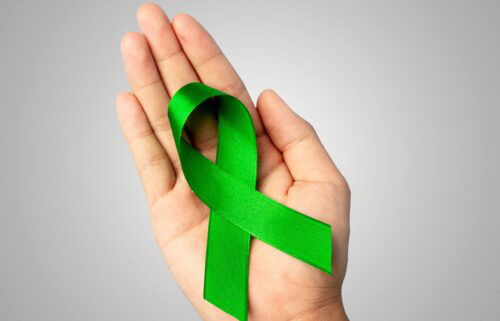The Covid-19 pandemic worsened an already dire childhood obesity epidemic

Pediatricians like us have seen it over and over again in the last few months — kids who have put on 5, sometimes 10, at times even 20 pounds — since the onset of the pandemic.
In a year filled with so much tragedy and suffering, it would be easy to dismiss a few extra pounds in a child or to think of weight gain as a problem to be solved once the pandemic recedes. But the weight gain we are seeing in kids is neither trivial nor can it wait.
The specifics leading to weight gain vary. Sometimes it’s Dad, who recently took over the cooking and may be overfeeding the kids; other times it’s Grandma, who has been spoiling them now that they’re home; for still others, favorite sports are no longer an option, or they’ve stopped going outside altogether.
Through the many stories we hear in our practices, one fact remains: The pandemic created the perfect conditions for kids to gain weight, and they have.
Deprived of nutrition and activity
What we are seeing in our offices — which serve mainly Black and Brown children — was predictable. As a result of what became an unnecessarily prolonged crisis, countless kids in this country have been deprived of the nutrition and opportunity for physical activity they previously received in school.
The loss of structured in-person learning has in turn disrupted other aspects of children’s lives — what was previously an 8 p.m. bedtime on a school night became 9 p.m. or later, until there was no bedtime. As parents juggled working from home while overseeing online learning, mealtimes changed, portion sizes became bigger, and snacks became more common.
The changes in every home have happened against a backdrop of record unemployment and skyrocketing food insecurity. In our practices we’ve seen food budgets gradually tighten and families turn to cheaper, higher-calorie, more processed foods in an attempt to feed their kids.
All of this — the unemployment, the food insecurity, the deprivation of in-person learning and the disruptions that have come with it — have disproportionately affected Black and Brown communities.
Higher rates of obesity
It’s children in these very same communities who had higher rates of obesity prior to the onset of the pandemic, and who are most at risk for its lifelong consequences. In the United States, 18.5% of all children ages 2 to 19, or 13.7 million kids, currently have obesity. For Hispanic children, the prevalence of obesity is 25.8%, compared to 22% for non-Hispanic Blacks and 14.1% for non-Hispanic White kids, according to the US Centers for Disease Control and Prevention.
Further, while Covid-19 has in general spared the majority of the pediatric population, it is children who suffer from obesity who are most at risk for its severe complications, including intubation and ICU admission.
Beyond Covid-19, the growing list of complications from childhood obesity is known to include diabetes, fatty liver disease, high cholesterol, chronic renal disease, musculoskeletal problems and decreased self-esteem, among many others.
Previously healthy kids are sick
Though these may seem like distant downstream consequences, they are manifesting themselves right now. Over the last few months, our clinics have filled with previously healthy children who now have high blood pressure, elevated markers for pre-diabetes and diabetes, children who have purposely started to skip meals after noting their own weight gain and children for whom the extra pounds have translated into new onset sleep apnea.
The American Academy of Pediatrics recently urged its more than 60,000 pediatrician members to continue to screen, counsel and treat obesity as it arises, even in a pandemic, via interim guidance. But pediatricians can’t turn this crisis around alone.
As we begin the work of guiding families to build healthier habits, a rise in mental health conditions like depression and anxiety in both kids and their parents, as well as the very same disruptions that led kids to gain weight in the first place, make obesity harder to treat.
Mental health issues make it worse
Depression can make it very difficult to plan meals, just like anxiety can at times lead to overeating. And recommending that a child eat more vegetables is an impossibility to a mother who has no access to fresh fruits and vegetables and is simply trying to feed hungry bellies and keep the lights on; and indoor physical activity can be a herculean task for a family of eight living in a single room.
Like many problems, the childhood obesity epidemic has been long in the making and acutely worsened by the Covid-19 pandemic. As we start to envision a post-pandemic world, however, we have an opportunity to make meaningful improvements in childhood obesity and thereby in the long-term health of a generation.
Now is the time to back national health recommendations with the financial relief parents need to implement them. Schools, too, will need improved and sustained funding if they are to provide healthy school meals to the many children who have spent the better part of 2020 at home. We must also find ways to keep afloat the many small primary care offices across this country that provide primary care services and serve as safety nets for the most vulnerable among us.
Though a vaccine will soon be available to many people, and the end of the pandemic seems more tangible, the consequences of the disruption to life will stay with us for years to come. The health of a generation of children depends on our foresight, investment and commitment now.



